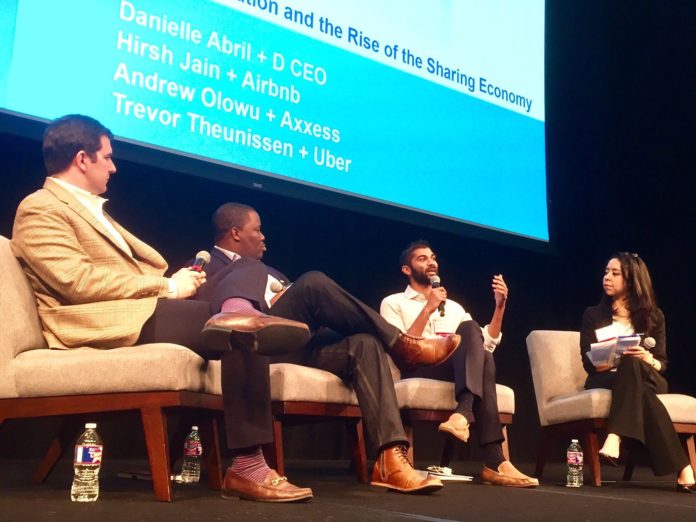Capital One Reimagine Communities
To access the full report:
www.reimaginecommunities.com
To prepare for the future, the Dallas-Fort Worth area needs to focus on training a work force with a solid base of digital skills.
That was one of the future trends discussed during Capital One’s Reimagine Communities symposium held in late January at Capital One’s campus in Plano.
The symposium brought in a number of nonprofit partners and social innovation experts and speakers to discuss topics emerging from Capital One’s commissioned report written by the Institute for the Future (IFTF) and titled DFW 2026: Igniting Economic and Cultural Prosperity in North Texas. The report identifies significant trends that will shape North Texas over the next decade.
In the luncheon session, Sanjiv Yajnik, president of Capital One Financial Services, pushed attendees to think about the implications of technology and about how much of a factor it is and will be in the development of North Texas. Individuals across the globe “think of the Facebooks, Googles and Amazons in the topic of technology,” he said. “The reality is that any and every company is being massively transformed by the power of digital.”
The report projects trends based on the fact that the 16 counties surrounding Dallas and Fort Worth, currently home to more than 7 million people, expect steady population growth into the next decade. That will dramatically enhance the area’s cultural, educational and skills diversity.
Other findings from the report:
• Steady population growth is expected to increase diversity. In Frisco, one of the fastest-growing cities in the United States, for example, future growth is expected to exceed past growth.
• The North Texas region will soon experience some of the fastest growth in middle-skill jobs, and nearly 8 in 10 of these jobs will require digital skills. Training initiatives will focus on helping individuals build the skills to fill in-demand middle-skill jobs and build meaningful careers.
• North Texas has several acknowledged challenges with neighborhood inequality, and the report highlights the importance of breaking down barriers and increasing access to quality education and jobs.
• Cities and suburbs in North Texas will leverage ubiquitous connectivity, real-time and big data, and algorithmic analytics to enable smart city services.
By 2030, the report says:
• Residents will be empowered through new and emerging artificial intelligence technologies.
• Continuous learning will be the new norm as more learning resources are distributed across platforms – like peer-to-peer networks – to help people master in-demand skills.
• The sharing economy will grow, with more people finding ways to earn a living by using personal assets.
• The creative economy of artists, gamers, entertainers, reporters and innovators will support the economic health and drive the overall well-being of Dallas-Fort Worth over the next decade.
“There are a number of factors at play in shaping the future landscape of DFW, and the potential for a shift in the way people work, live, learn and build is certainly there,” said Rachel Maguire, research director at IFTF. “Residents of the area are really going to be accountable for leveraging existing and emerging technologies and guiding the growth, not only in number but in diversity, to further establish the community’s collaborative and successful future.”






